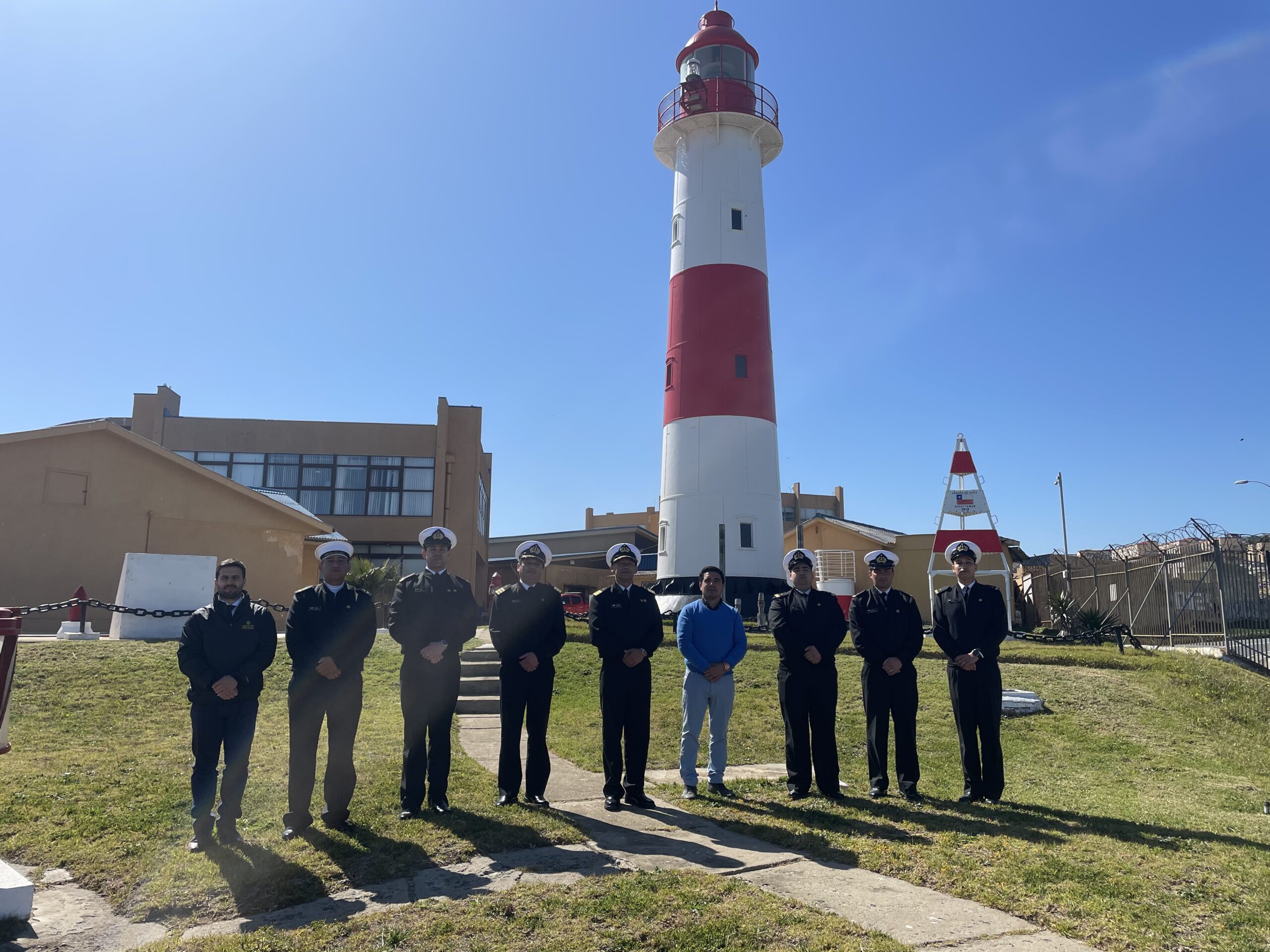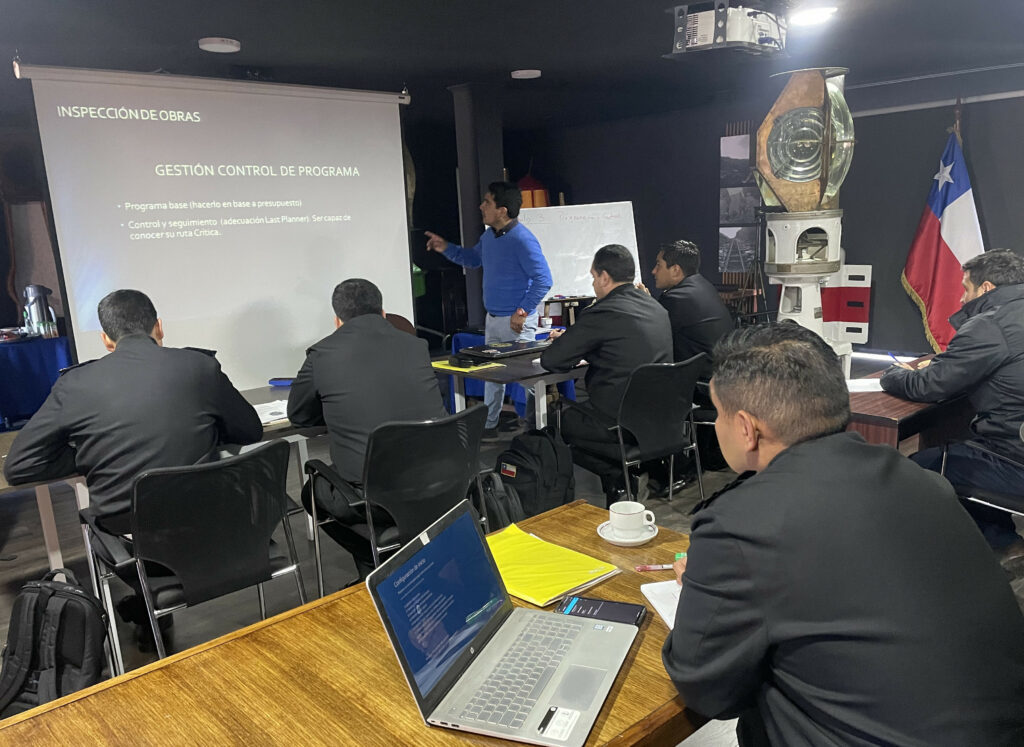Chilean Navy Maritime Signalling Service

Qualifications for a Technical Inspector of Construction Works
By Commander (CG) Ricardo Cárcamo Pascual, Head of Maritime Signalling Service, Chilean Navy
After five years of study, the Coastal Officer of the Chilean Navy, acquires the professional title of Engineer in Maritime Administration, in which he acquires the competencies to perform as Maritime Authority of executive level, Operations Officer and Maritime Government, as well as Bridge Officer and Commander of Patrol Boats fulfilling law enforcement, pollution control and maritime search and rescue operations. An optional postgraduate course for the above-mentioned officers is the Maritime Signalling Sub-specialty, which is awarded after nine months of technical study in the field of management of aids to navigation.
In this stage, the Officer is trained as specified in the IALA L1 Administrator in Aids to Navigation model course, in the areas of electronics, electricity, communications and the different types of aids to navigation equipment, as well as in the processes of administration and control of the operation, installation and maintenance of aids to navigation systems, in addition to the execution of administrative and logistical tasks, to be able to manage the material resources in the operation, maintenance of equipment and structures and tasks related to the inhabited lighthouses, with emphasis on the preservation of the lighthouse heritage.
This is of particular importance because one of the most important functions of the Sub-Specialist Officer is to supervise the fiscal control of the works related to the construction, installation and maintenance of lighthouse structures, a task that has as an additional ingredient the extreme geographical and climatological conditions of our country, which begin in the arid desert of the North and culminate in the icy regions of the Chilean Antarctic Territory, which means that the logistical and technical preparation cannot be overlooked if the correct use is to be made of human and material resources.
In this sense, the works of construction, assembly or maintenance of a navigational aid structure are carried out by institutional personnel specialized in lighthouses or they are entrusted to duly qualified private companies. These works must be supervised during the planning, execution and handing over phases, so that, independently of the existence of professional consultants, it is necessary to ensure the training of the personnel who manage the aids to navigation.
Therefore, considering that lighthouse structures are an important basis for navigation and a significant heritage for future generations, in addition to the formal competencies, the Maritime Signal Officer receives additional training as a Technical Inspector of Construction Works in order to improve the contents and correctly deal with the tasks related to the structures.
The training of the Technical Inspector of Construction Works is carried out by an external company, by experts with experience in the area, who provide competencies related to construction legislation, code of ethics in the field, concepts of supervision and inspection of works in the field, attributes and duties of the inspector, quality control, planning of works and the use of planning and control tools.

Rapporteur: Paul Ridgway
